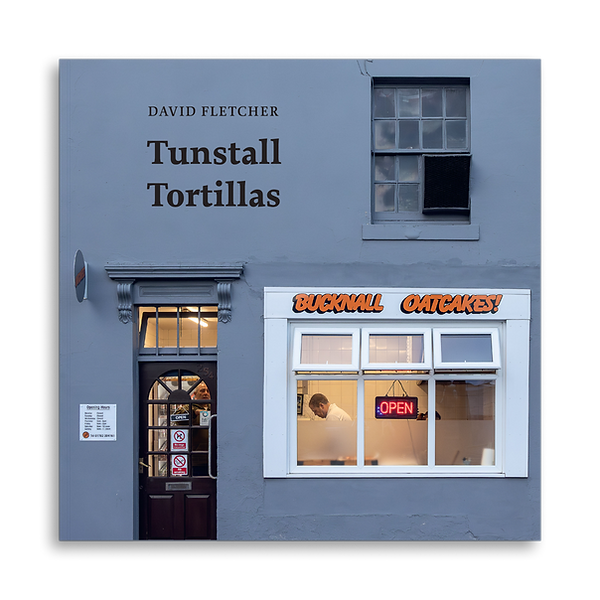For the first time ever the UK has a land border with the EU - the border which divides the island of Ireland.

A celebration of the Oatcake shops of Stoke-on-Trent

As featured on BBC Midlands Today
Where to buy
Tunstall Tortillas is available now from RRB books in Bristol by mail order or from Barewall Art Gallery in Burslem, either by mail order or in person.
Tunstall Tortillas by Stoke-on-Trent-born photographer David Fletcher celebrates the unique cultural phenomenon of Staffordshire oatcake shops in and around Stoke, including the owners, the customers and the community these shops represent. The title comes from Ode to the Oatcake by Arthur Berry - artist, poet and playwright from Stoke - whose centenary is being celebrated as this book is published.
James Boswell in his Life of Johnson explains in the entry for 23 March 1776 that ‘oat cakes not hard as in Scotland, but soft like a Yorkshire cake, were served at breakfast’. As Arthur Berry would have it 200 years later, they are ‘More of a Potteries Popadum, a sort of Tunstall Tortilla’. Tunstall is one of the six towns which make up the City of Stoke-on-Trent, which also celebrates its centenary in 2025.
Unlike most local foods, the Staffordshire oatcake is made and sold in dedicated shops. Though the oatcake is made from simple ingredients, each shop has its own closely guarded recipe, passed from owner to owner, sometimes through generations of the same family. They continue to thrive, remaining central to their communities and preserving a distinctive part of the UK’s culinary heritage.
It was only after leaving my home town of Stoke-on-Trent that I became aware not everyone was fortunate enough to have oatcakes in their lives. The oatcake is a canvas on which to create your breakfast - this is edible culture, history you can eat – David Fletcher
Much of the industrial landscape which created Stoke’s prosperity has gone – potteries, coal mines and steelworks have disappeared, but the oatcake shop is indestructible. After years of documenting destruction and replacement in Leeds, photographer Peter Mitchell called his retrospective monograph Nothing Lasts Forever; perhaps the oatcake shop will.
These shops are genuine originals, as are the people who run them, each uniquely part of Stoke. In the face of shifting shopping habits, rising costs, and the pressures of modern life, it is remarkable that they continue to flourish. While some long-standing establishments have closed, new ones are still opening their doors. Perhaps the reason so many endure comes from loyalty: everyone has their favourite, and not just any oatcake shop will do for their Sunday breakfast.
Through portraits, shopfront studies, and everyday scenes, the book examines how the Staffordshire oatcake continues to embody a sense of place and belonging. This is a visual testament to Stoke — to the sizzle of batter poured onto a hot griddle, to community, and to the simple genius of the oatcake.
One of my childhood treats was to eat the delicious oatcakes made in Stoke-on-Trent when visiting relatives there. This book is an ode to them and like the oatcakes shown in the pictures is different from any other. It is a true document of regional culture, which some will find ordinary and others extraordinary in its homeliness. - David Bate







